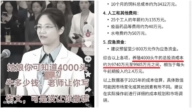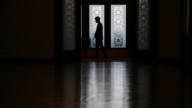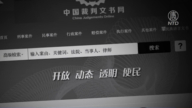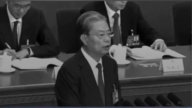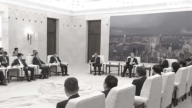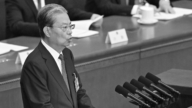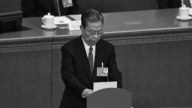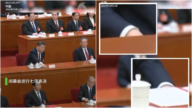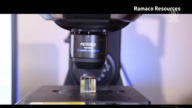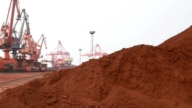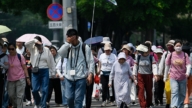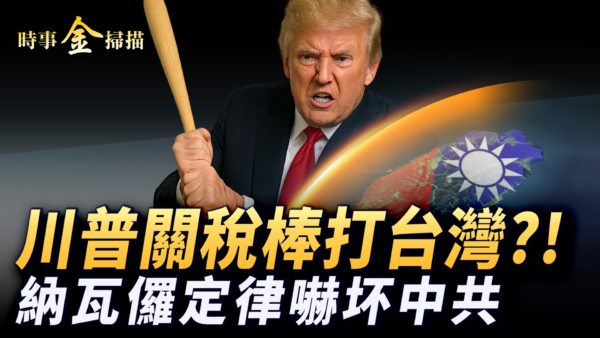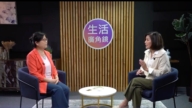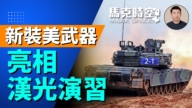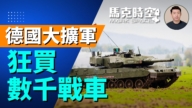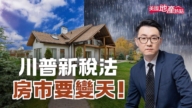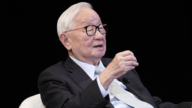【新唐人2014年03月13日讯】中共正在召开的“两会”上,官员财产公示又成为舆论的热点。人大代表、广州市长陈建华说,官员财产公示怎么搞?希望中共高层给个说法。而民间从2012年底不断有公民公开举牌,呼吁官员公示财产。其中一大批参与者已经被抓,甚至获刑。那么,现在其他参与者们和支持者们,如何看待中共内部的这种所谓财产公示呢?请看详细报导。
据大陆媒体报导,广州市长陈建华在“两会”上说,在试点地区搞官员财产申报后,效果很明显。下一步怎么搞,希望中共高层给个说法。大陆官方媒体对此的回应是:官员财产公示不必总等中央的说法。
从去年开始,广州南沙新区和韶关始兴县的三个基层县区,成为中共内部官员财产申报的试点地区。
大陆维权律师黎雄兵:“内部监督当然不能达到财产公示的目标。公示的基本意义那就是对社会公开,权力者对他的权力对像公开,这是一个财产公开的本来的涵义。内部公示那就无异于财产所有者对自己公开一样,自己有多少钱,自己本身就很清楚,那无需要公开了。”
当大陆媒体询问陈建华“有没有官员虚报财产”时,他表示,不分管这项工作,不了解情况。
去年,大陆网上曝光了大量“房叔”、“房婶”、“房姐”等官员。其中坐拥22套房产的广州“房叔”蔡彬,获刑11年半,并被没收财产60万元。
大陆维权律师黎雄兵介绍,在国际上,官员财产公示对于民主国家,已经形成了一种制度,是政治常识或者叫普世价值。官员上任之前,就要公布自己的财产情况﹔离任后,对财产的变化也要公布。如果公众对他的财产质疑,他就要允许公共的独立机构对他进行调查。
黎雄兵:“在这个问题上,如果还要存在着争论,还有什么试点,还要存在着什么条件不纯熟,那我觉得这都是无稽之谈,这都是荒唐的。这种思维本身,就比腐败本身更加可怕。它保护腐败,它掩护腐败,它把腐败包装出来,使它合法化了。”
大陆网友欧彪峰是“南方街头运动”的积极参与者。他认为,西方官员的财产可以被公众监督,与西方社会制度有关。
大陆网友欧彪峰:“起码首先这个官员他是经过民众自由选举产生的,第二,他们的媒体是自由的,新闻是自由的,司法是独立的,他们就已经有很好的机制在这里,但是我们中国完全是没有民主的。”
2012年底,大陆各阶层民众自发联名,发出《公民建议书》,呼吁中共205位高官公示财产。参与者包括北京律师丁家喜、广州维权推动者郭飞雄、北京“理工大学”教授胡星斗等人。
今年1月,当局抓捕“公盟”组织创始人,法律学者许志永,和丁家喜、及江西独立参选人刘萍等参与《公民建议书》者,并开庭审理。许志永获刑4年。
黎雄兵认为,中国公民轻信了当局将要实行官员财产公开的承诺,就非常真诚的去推动财产公示运动,结果付出了惨痛的代价。
黎雄兵:“他们低估了目前这种保守的、专制的政治体制,在反对和阻挠财产公开方面的巨大的阻力。在目前中国的基本政治制度之下,谁要要求官员真的实施财产公开,那么谁就必然遭到打压,这是毫无疑问的。在这个问题上,不能抱有半点侥幸。”
欧彪峰:“民间要求官员财产公示,其实也是对专制体制的一个切入口,希望对中国的政治体制有所突破。但是非常遗憾,这种非常理性的,非常柔和的诉求,也是被当局残酷的打压,这个也证明了当局的虚弱与害怕。”
黎雄兵表示,这些遭受打压仍在坚持的中国公民们,是出自对国家、民族和自身权利的责任感、正义感和使命感。他期待,他们能尽早获得自由。
采访编辑/唐音 后制/周天
Commentary On Chinese Communist Party Officials Disclosing Assets
During a Chinese Communist Party (CCP) congress meeting,
disclosure of officials assets has again become a hot topic.
A representative, Guangzhou Mayor Chen Jianhua
raised questions about how to disclose officials assets?
He hoped the high level officials could give an explanation.
Civil campaigns urging officials to disclose their
assets have repeatedly taken place since 2012.
Subsequently, most of the campaigners
have been arrested and sentenced.
What do the other participants and supporters
of these campaigns think about the CCP’s internal
discussion about disclosure of officials’assets?
Chinese media cited Chen Jianhua
speaking in the congress meeting.
In pilot areas, officials have disclosed their
assets, and it has brought good results.
Chen wanted to know what to do next, hoping
the high-level officials could give guidance.
The media responded that, “to disclose officials
assets doesn’t need the central regime’s guidance.”
In 2013, a pilot project was launched in three areas in
Guangzhou Province, for officials to declare their assets.
Li Xiongbing, China-based activist lawyer:
“Internal monitoring certainly cannot
achieve the goal of disclosure of assets.
The meaning of the declaration is to be open
to the public. This is the primary purpose.
Internal disclosure of officials private
assets is like declaring to themselves.
How much money do they have, they know it
clearly already, so it is not necessary to declare.”
A journalist asked Chen Jianhua whether
there were any false declarations.
Chen responded that he doesn’t work
on this area, so he wasn’t clear about it.
In 2013, many officials, including house uncles,
house aunties, house sisters were exposed online.
Amongst them was Cai Bin, who owned 22 properties.
Cai was given an eleven and a half year prison
sentence, and 600,000 yuan assets were confiscated.
Li Xiongbing said that in a democratic country,
officials disclosing private assets is the system.
It is political common sense, and also a universal value.
Before an official is appointed, the official
must declare his property information.
When the official leaves, the changes of his
private assets also need to be publicized.
If the public question anything, the official must
allow an independent agency to investigate.
Li Xiongbing: “If there is an argument existing over
this issue, of whether to launch a pilot project, or
thinking the time is not right, then I think it is nonsense.
This way of thinking is even worse than corruption.
It protects and hides corruption,
wraps up corruption, and legalizes it.”
Netizen Ou Biaofeng actively
participates in “Southern Street Action”.
He commented that in Western countries, officials
private assets can be supervised by the public.
This is the democratic system.
Ou Biaofeng: “This official has
been elected freely by the public.
Their media and news are free to express,
and their legal system is independent.
They have a good system, but in China
we don’t have a democratic system.”
At the end of 2012, people from all walks of life
initiated a signatory campaign, and issued a letter.
The letter urged 205 CCP officials to disclose their assets.
The campaigners included Beijing lawyer Ding Jiaxi,
Guangdong activist lawyer Guo Feixion, as well as
Professor Hu Xingdou of Beijing Institute of Technology.
In January 2014, the regime arrested Xu Zhiyong,
a legal scholar and founder of New Citizens’ Movement.
It also arrested and tried more people who participated
in the letter, including activists Ding Jiaxi and Liu Ping.
Xu Zhiyong was sentenced to four years in prison.
Li Xiongbing believes that Chinese people
easily trust that the regime would keep
their promise to disclose officials assets.
Thus, the citizens sincerely pushed forward
the movement for declaration of assets.
But in the end, these citizens learned a hard lesson.
Li Xiongbing: “Citizens underestimated the
current closed and authoritarian political system.
They faced huge resistance and obstacles
from publicizing the regime officials wealth.
Under the current system, whoever requests officials
to disclose private assets will be suppressed.
There is no doubt. In this regard,
one cannot hold this sort of hope.”
Ou Biaofeng: “Citizens requested
the officials to publicize their wealth.
Actually, this is an entry point to fight the dictatorship,
and they hope to break through the CCP political system.
Unfortunately, the rational and soft
requests were brutally suppressed.
It proves that the regime is weak and scared of it.”
Li Xiongbing believes that these Chinese citizens who
were suppressed by the regime are still campaigning.
They have a sense of responsibility, justice
and a mission for the country and the nation.
Li hopes they can be free soon.
Interview & Edit/Tangying Post-Production/Zhoutian


